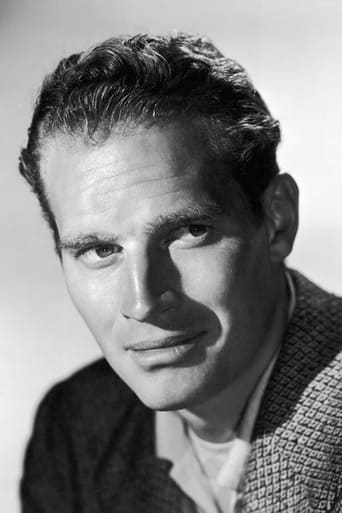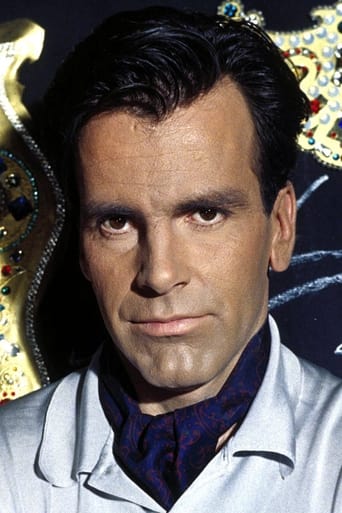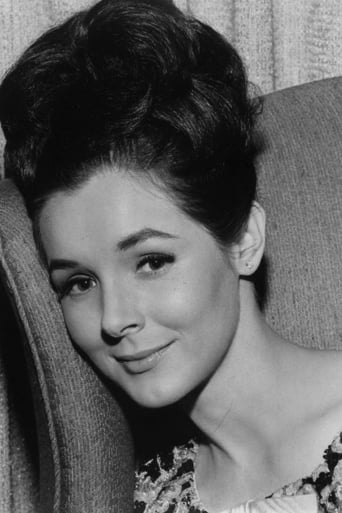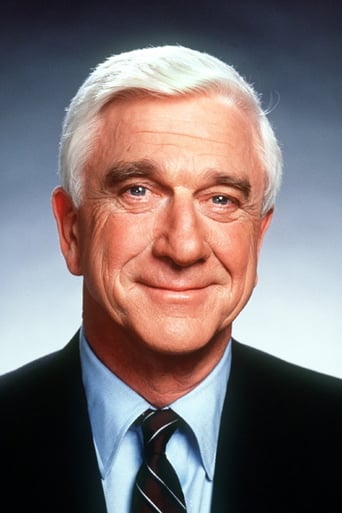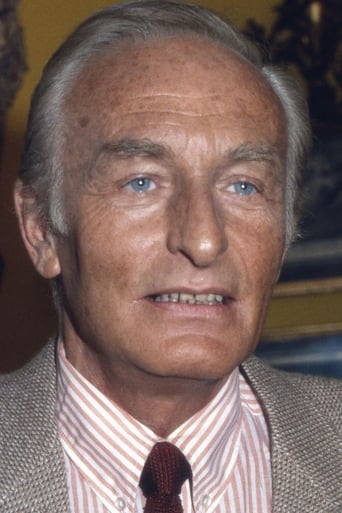SnoReptilePlenty
Memorable, crazy movie
Steineded
How sad is this?
Beanbioca
As Good As It Gets
Gunn
I know the plot may be a little far-fetched, but this is still a very involving and entertaining film. It takes place near the end of World War II when most of central Europe is secure and USO troupes are busy entertaining the Allied troops. A Philharmonic Orchestra on a USO tour ends up in Belgium and encounters a pocket of Nazi soldiers. Captured, the orchestra is to be exterminated after the General (Maxmillian Schell) wangles a personal concert out of the arrogant conductor (Charlton Heston). The mind games between these two, regarding the staging of a concert is part of the fun. The music is great, adding to the tension and enjoyment of the film. It holds up very well after 40 plus years. It works both as an action film and a character study. Anton Diffring stands out in a very fine cast. Topnotch! BEWARE the DVD: I ordered the DVD from a company I will not name nd it was of very poor quality. The film, which is in color, was dark and black most of the way through and the focus was not sharp. The sound was low-fi, fuzzy and unacceptable to my criteria. We need to wait for Universal to put out a decent print. Don't waste your money on this one!
juan carlos
I make a difference, referring to war movies. There are some that are very faithful to the history such as Midway, Tora, Tora, Tora and there are some that emphasize the epic and heroic aspects of soldier life in terrible circumstances. I have to say that I am more interested in the second ones such as The Dirty Dozen, The Eagle has landed, etc. Counterpoint belongs to the second category. A famous music director (C. Heston) and his orchestra is kidnapped by the Nazy army in Belgium. The German General (M. Schell) wants this orchestra to play for him but the director delays this concert as much as possible to avoid his musicians to be killed. I think Ralphn Nelson felt some empathy for the character, starred by Heston because he was in the Army in the II World War and participated in different plays in Broadway to entertain people in the same way Heston tries to entertain soldiers in the cold Europe. Schell and Heston perform their roles perfectly: they admire each other but war has placed them in different sides of the river. Schell is far from the archetype of the Germans in the Hitler era. There is a love subplot between Heston and one old love, his musician,Kathryn Hays, who is now married with a partner, a serious Leslie Nielsen. This love story and the sequence in which an American soldier is nearly discovered by a German Colonel but he feigns to be a musician of the orchestra, playing the U.S. hymn, remind me of Casablanca. The cinematography of Russel Metty, in which the shadows have a relevant role, is quite brilliant. So, it deserves to be seen.Juan Carlos del Castillo Álvarez
silverscreen888
This is perhaps not a great movie; but as many viewers have attested over the years, it is a very memorable attempt at entertainment. The context of this dramatic film is WWII. People do strange things in wartime, I suggest; but once one accepts the physical presence of a fine orchestra led by a pompous but talented man in harm's way, where he can be coveted, captured and coerced by a civilized Nazi officer and menaced by an SS type, everything else falls into place. The other elements in the plot about an orchestra leader "not playing, for time" to save the lives of his orchestra's members and two US soldiers who have been caught in the same zone with no escape are these: a traitor in the orchestra; a relationship between the leader and a cellist; his relations with her husband, his concertmaster, the SS officer's desire to exterminate them, and the desire of the Nazi captor to have them play something just for him in the midst of wartime--these are unusual attributes for a 'war film, I assert. Those who missed the main point of the film, that the ethics of emergencies are different than those of normative times, thus missed why the movie was made. There are examples, in history such as "Playing For Time": for instance, of musicians and Jewish ones and females being kept alive to play for Nazi officers; the clever part here is that writers James Lee and Joel Oliansky 'fictionalized' the idea by providing interesting additions to the basic situation, which are: the aforementioned affair, the danger that brings out the characters more strongly, the need NOT to play, and the additional element of a traitor in their midst, the two US types and the often-used but effective distinction between civilized Germans serving Hitler's Nazi war'machine' and SS types enjoying their unlimited power to do harm to anyone they single out during that war. The change in the leader's character during the film is that he must remain true to himself and also prioritize what he does for the good of the group, no easy task. And the music is wonderful, the atmosphere so good even naysayers have remarked on it. As to the acting, it is far better than the mumbling and often ludicrous submediocrity that has characterized Hollywood unprofessionalism since 1973. The film was directed by Ralph Nelson. The good cast included Charlton Heston as the monomaniacal maestro, Maximilian Schell and Anton Diffrimf as the German contestants for the lives of the orchestra's members, Leslie Nielse and Kathryn hays as the other members of the love triangle, plus Neva Patterson, Cyril Delevanti, Gregory Morton, Parley Baer, Ed Peck, Peter Masterson, Curt Lowens and many more. Original music for the film was composed by Bronislau Kaper; cinematography was done by Russell Metty. Art direction was done by Carl Anderson and Alexander Golitzen, set decoration by John McCarthy Jr. and George Milo with costumes by Burton Miller The film is well-=aced, the dialogue above average, many scenes well-thought out; and the music alone is worth the price of admission. Anyone who does not enjoy this film and believe in its essential logic is perhaps an opponent of realistic behavior, actions that consist of dealing with the unusual sometimes, and with something other than rock-and-roll level cardboard types characterized by what is wrong with them and not by anything higher. Worth seeing more than once.
danfcon
Let me qualify those 7 stars. You have to like Heston, Schell, WWII movies, and classical music in order to appreciate this movie. Heston is the conductor of an orchestra that is caught behind German lines during the Battle of the Bulge. Schell is a Prussian style educated yet cultured officer who is caught between his appreciation for culture and his orders not to delay the battle by wasting time on taking prisoners. The orchestra is USO. A side conflict is provided by the orchestra taking in 2 GIs who are also cut off behind enemy lines and hiding them as members of the orchestra. This is a war, "small w", movie. I remember a lot of grimacing from Heston and Schell, but that is what they do! Look beyond the cardboard characters and you may find a good little picture about a protagonist and an antagonist playing chess without a board.

